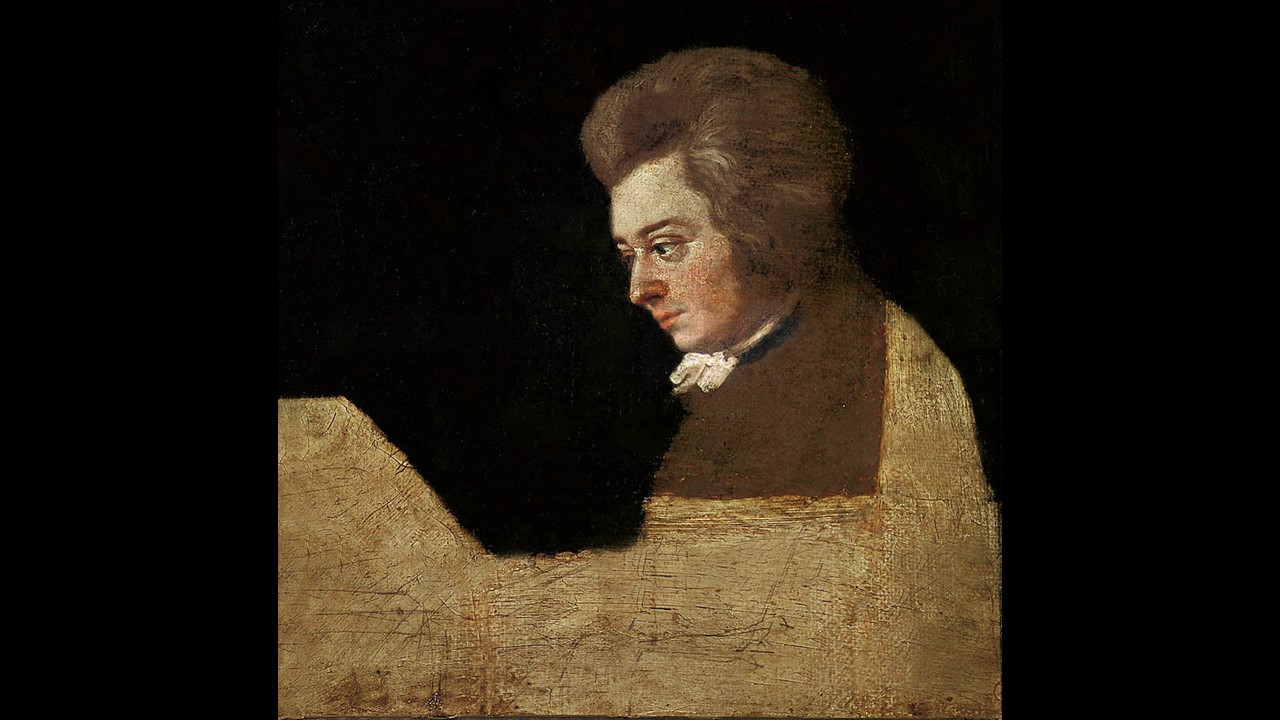Wolfgang Amadeus Mozart, by Joseph Lange (1783? / 1789?); as viewed by a Philistine
Consider Lange’s well-known portrait
Of his in-law, a composer:
It’s good, we see, but it requires
A scrutiny that’s closer.
This fellow couldn’t get a job,
Or keep one if he got it.
Was he worth all Lange’s trouble?
If he’d finished, who’d have bought it?
Lange’s pallet and his brush
We’re not especially big on.
The subject’s hair’s the thing: we ask,
“How did he keep a wig on?”
Orlando di Lasso and musicians in chapel service at the court of Duke Albert V of Bavaria (detail), by Hans Mielich (after 1558; by 1570)

A Flemish youngster, Lasso had
A sterling set of vocal cords.
Italian agents said, “Not bad!”
And snatched him up to serve the lords
At courts where music was a thing
That kept the many dilettantes
Enthralled, and caused them all to bring
To town their uncles and their aunts
So that they might show off to all
That beauteous voice from Flanders land.
But all too soon he had the gall,
Knowing he was in great demand,
To make for Munich, where he stayed
And wrote motets, madrigals, too,
Chansons and more. He had it made—
As this fine painting gives a clue.
Julian D. Woodruff was a teacher, orchestral musician, and librarian. He served for several years as librarian at the Crocker Art Museum, Sacramento, CA. He now resides in the area of Rochester, NY, where he writes poetry and fiction, much of it for children. His work has appeared in Frostfire Worlds and on the websites of Carmina, Parody Poetry, and Reedsy. His GPS poem placed tenth in the last riddle contest of The Society of Classical Poets.















Interesting concept, Julian, history through poetry and poetry through history! Thank you.
Thanks, Leo
Any compliment from you I value highly.
The topics, and attitudes of Mr. Woodruff’s poems are unique and remarkable. His poetic voice is of interest, because of its infectious, insouciant power.